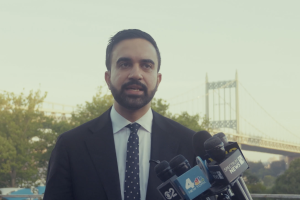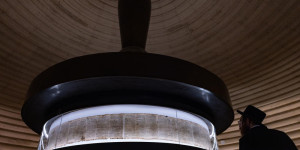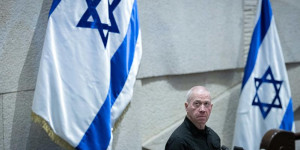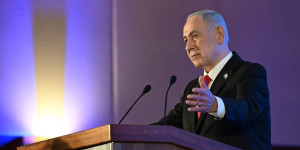Is history repeating itself in New York?
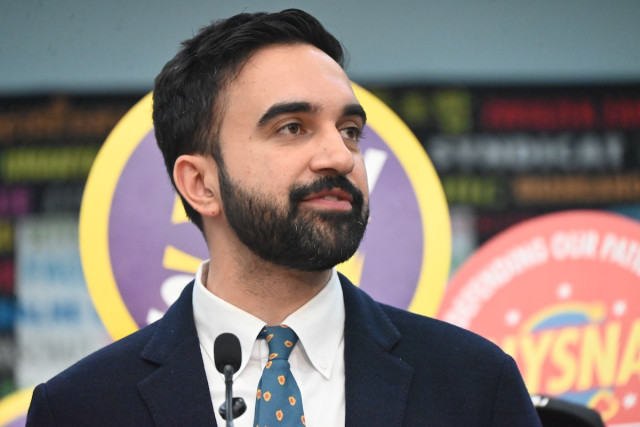
For nearly five years, it feels like every week brings another report of an antisemitic incident in America.
Statistically, anti-Jewish crimes are rising faster than those targeting any other faith. Yet much of the American Jewish community continues to look away, like a horse with blinders, aware of the danger but unwilling to fully confront it.
Now, with Democratic Socialist Zohran Mamdani winning the Democratic primary for mayor of New York City, the alarm bells should be deafening. For those who have long warned of rising antisemitism in progressive circles, this is a moment of reckoning – and they're pleading for the rest of the community to finally listen.
"Mamdani's win represents a larger trend that is happening in our country," American social media influencer and pro-Israel activist Elizabeth (Lizzy) Savetsky told ALL ISRAEL NEWS. "Our young people are getting socialized into these radical ideologies in their schools and universities, and then they look at this guy as one of them."
According to Savetsky, in America, a group of elitist idealists has embraced the belief that their mission is to champion the oppressed – and many Jews are among them. This worldview frames everything as a binary struggle between oppressor and oppressed. For many of New York's most liberal Jews, Mamdani represents a kind of savior.
"Mamdani is going to come in and save all of the underprivileged people with his socialist policies, and he is going to fight against any pro-Israel language because (for him) that country is the picture of evil and oppression," Savetsky added. "I have been sounding the alarm about where our city and country are heading for years. I knew it was only a matter of time before something like this would happen. It is not surprising to me."
And as Savetsky said, Mamdani's victory may only be the beginning. New York City is widely considered a cultural and political trendsetter – and if socialist Democrats like Mamdani gain power in the Big Apple, they could also do so in the rest of the country.
New York City has long been a liberal, Democratic stronghold. The election of U.S. President Donald Trump likely triggered a political backlash in the city – one that may have helped pave the way for Mamdani's victory.
If elected, Mamdani, 33, would become the city's first Muslim mayor. But his faith is not the central issue.
He is an outspoken anti-Zionist and a vocal supporter of the BDS movement, having called for "globalizing the intifada." He has criticized the longstanding tradition of New York City mayors visiting Israel. He has stated more than once that he would arrest Israeli Prime Minister Benjamin Netanyahu if he came to New York while still under an International Criminal Court warrant. Mamdani also founded his college's chapter of Students for Justice in Palestine.
Given these views, many were stunned that a candidate like Mamdani could win the mayoral primary in a city that has the largest Jewish population in the world outside of Israel.
What surprised many even more was that around 20% of the Jewish vote went to him. Mamdani received endorsements from prominent Jewish leaders and politicians – not only in New York but across the country – including Chuck Schumer, Bernie Sanders, Jerry Nadler, and New York City Comptroller Brad Lander.
According to a Pew Research Center survey, seven in ten Jewish adults identify with or lean toward the Democratic Party, and half describe their political views as liberal. For years, polls have shown that younger Jews are shifting in their views on Israel, seeing it less as a small, embattled state and more as a coercive – and in some cases, even occupying – Goliath. Many young Jews distinguish between anti-Zionism and antisemitism, despite the International Holocaust Remembrance Alliance (IHRA) definition, which links them. They often fear being labeled "Jewish racists" more than they fear Palestinian terrorism.
Savetsky pointed out that Jews make up about 12% of New York City's population, meaning Mamdani's landslide win would not have been possible without significant Jewish support and backing from other white, educated, and affluent voters.
There are growing murmurs that a win like Mamdani's – with significant Jewish support – feels eerily reminiscent of Germany before World War II, or other times in history when antisemitism was dominant and Jews were targeted.
"If you look throughout history, not just pre-Holocaust, but every generation they rise up against us," Savetsky said. "This is our story: We get comfortable and complicit and dilute ourselves into believing that we have melted into the status quo of society. Then, something happens, and slowly but surely, the tide turns against us."
She explained that it often begins with the normalization of certain statements, which then seep into the education system and pop culture until it becomes socially acceptable to blame the Jews. The tropes may shift slightly with each era, but the pattern remains.
Today, social media accelerates the process. What would have taken years to spread in the 1930s and 1940s takes weeks or months to spread today, like a vicious disease.
Mamdani has denied allegations of antisemitism and has stated publicly that "there's no room for antisemitism in this city." He has also pledged to push for an 800% increase in anti-hate program funding and create a new department focused on community safety.
But pro-Israel, conservative Jews are not convinced.
"America has become a place I don't recognize," said Israeli-American veteran journalist and analyst Ruthie Blum. "People are being beaten up and called 'dirty Jew.' It's on the right and the left."
Blum told ALL ISRAEL NEWS she understands now why Jews didn't flee Germany sooner. At the time, there was no precedent for Adolf Hitler, and most could not fathom the horrors that would follow – death camps and genocide were beyond imagination.
"Even though now we know and it did happen, and we see these trends, we still cannot imagine it is happening – even while it is happening," Blum said. "I know a lot of Jews in America, Jews who love and care about Judaism and Israel, and they would rather pay $90,000 a year to get their kids into Harvard with swastikas and Students for Justice in Palestine than consider moving to Israel."
According to Blum, for many American Jews, liberalism has become its own kind of religion. Those who lean Republican, are more conservative, or who support Trump are dismissed as "bad Jews." This mirrors the attitudes of secular Jews in pre-Nazi Germany, who believed their contributions to art, science, and society – and their secularism — would protect them from antisemitic persecution.
She also noted that rising antisemitism often signals broader societal breakdown. In America today, partisan divisions and internal conflict are at an all-time high – and that should worry everyone, not just Jews.
The implications for Israel are equally troubling. As the country nears the end of a grueling 21-month war against Hamas and confronts threats on six other fronts, the rise of anti-Israel sentiment among younger American politicians could make future U.S.-Israel relations more fragile.
Analysts warn that Mamdani's victory may reflect a broader trend in American politics. While the current Democratic leadership still maintains a foundational support for Israel, many younger progressives are laser-focused on the Palestinian cause and see Israel through a lens of power and oppression.
The Jewish Community Relations Council of New York and the American Jewish Committee have already publicly opposed Mamdani. The JCRC stated that his views "deny the legitimacy of Jewish ties to Israel."
Among the more than 20,000 Israelis living in New York, many also expressed concern.
"What happens if Mamdani is asked to deploy police to secure an Israeli cultural event?" asked Ynet News' New York correspondent Daniel Edelson. "When his proposed department must decide who is attacker and who is victim? When pro-Palestinian activists demand the cancellation of agreements with Israeli institutions or with U.S. charities that run exchange programs?"
While it's unlikely that Mamdani's more radical proposals will be implemented quickly – or that the Democratic Party will shift overnight – his win marks a turning point. The once-solid pro-Israel consensus among Democrats appears to be weakening. That shift could spell real challenges for both American Jews and the State of Israel in the years ahead.
"Any Jewish person who is not awake yet needs to wake up," Savetsky said. "They are coming for all of us."
She acknowledged that some accuse her of "fearmongering," but insists she will keep raising the alarm – and now, her immediate focus is on rallying New York's Jews to vote against Mamdani in November, when he will face Republican candidate Curtis Sliwa.
"We can make an impact," Savetsky said. "We need to stand up now and do everything we can."
.jpg)
Maayan Hoffman is a veteran American-Israeli journalist. She is the Executive Editor of ILTV News and formerly served as News Editor and Deputy CEO of The Jerusalem Post, where she launched the paper’s Christian World portal. She is also a correspondent for The Media Line and host of the Hadassah on Call podcast.
You might also like to read this:


